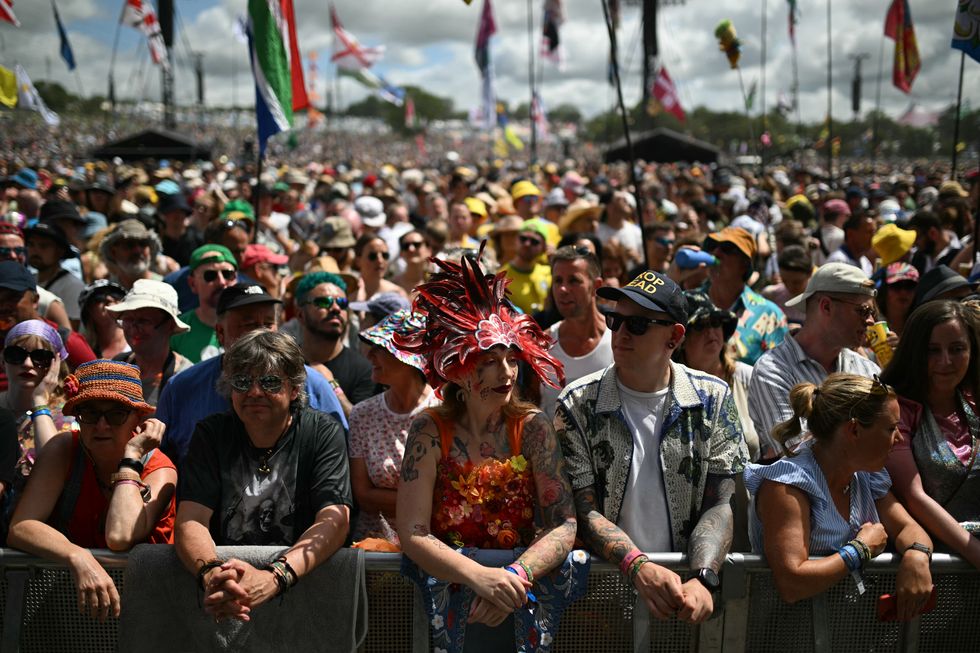PARLIAMENT voted in favour of a new bill to legalise assisted dying on Friday (29), opening the way for months of further debate over an issue that has sparked a national conversation over dignity in death and end-of-life care.
In an initial approval of the bill, 330 lawmakers voted in favour with 275 against the "Terminally Ill Adults (End of Life)" bill, which would provide for mentally competent, terminally ill adults in England and Wales who are assessed by doctors to have six months or less left to live the right to choose to end their lives with medical help.
It kicks off months of further debate and the bill could still be changed or even voted down as it makes its way through both the House of Commons and the unelected upper chamber of parliament, the House of Lords.
"It will be a very thorough process," Kim Leadbeater, the Labour lawmaker who introduced the bill, told the BBC, adding that the process could take another six months and that she was open to discussing further changes to address people's concerns.
"There's plenty of time to get this right," she said after more than four hours of often emotional debate in the chamber.
According to the voting pattern, nearly 70 per cent of Asian MPs voted against the bill and only a quarter supported it.
Former prime minister Rishi Sunak backed the proposal, while former home secretaries Suella Braverman and Priti Patel stood in opposition.
Labour Party emerged as the most fractured, with members populating both the 'for' and 'against' camps. Twelve Asian MPs, including prominent figures like Lisa Nandy and Nadia Whittome, voted in favour, while 18 Labour lawmakers, among them Naz Shah and Rushanara Ali, opposed the bill.
Independent MPs predominantly rejected the vote, with five members including Zarah Sultana and Apsana Begum voting against.
A small contingent of three MPs - Afzal Khan, Nusrat Ghani, and Navendu Mishra - abstained.
As per data, out of 47 Asian MPs tracked, 12 supported, 32 opposed, and three recorded no vote.
Those in favour of the bill say it is about shortening the death of those who are terminally ill and giving them more control.
But opponents say vulnerable ill people may feel they should end their lives for fear of being a burden to their families and society, rather than prioritising their own wellbeing.
Others expressed concern that there had not been enough time to consider the bill before voting.
"There will be a further opportunity to improve it if we can, and if we can't, then I hope we'll be able to reject it," Conservative lawmaker Danny Kruger, a leading opponent of the legislation, told Sky News, adding he believed it was "impossible to write a bill that is safe".
The proposal has stirred a national debate in Britain, with former prime ministers, faith leaders, medics, judges, the disabled and ministers in prime minister Keir Starmer's Labour government weighing in on the issue.
Starmer voted in favour of the bill, though some other senior members of his government voted against. Polls suggest a majority of Britons back assisted dying.
The bill would change the law in England and Wales. As to the other countries in the United Kingdom, Scotland is considering a change to its own law to allow assisted dying, but there are no such proposals in Northern Ireland.
People in favour of assisted dying gathered in groups outside parliament on Friday to watch the vote on their mobile phones. Some had their hands pressed together as if in prayer.
When the result of the vote was announced some people hugged and cheered. Some shouted: "Yes!" Others said: "We have done it" and "Thank you".
Leadbeater paid tribute to the passionate but measured nature of the debate, even from those who opposed her bill.
"It's very emotional, but it's emotional for lots of people," she said. "I'm just glad that we've managed to represent those voices here today, and we can take this on to the next stage."
(Reuters)






 Festival goers at Glastonbury festival 2025Getty Images
Festival goers at Glastonbury festival 2025Getty Images  Pyramid Stage crowd swells ahead of the mystery Patchwork act rumoured to be Pulp Instagram/
Pyramid Stage crowd swells ahead of the mystery Patchwork act rumoured to be Pulp Instagram/ Kneecap welcome as political tension surrounds their setGetty Images
Kneecap welcome as political tension surrounds their setGetty Images Crowds of festival-goers fill the pathways during day three of Glastonbury festival 2025Getty Images
Crowds of festival-goers fill the pathways during day three of Glastonbury festival 2025Getty Images 









 Daniel Craig poses as James BondGetty Images
Daniel Craig poses as James BondGetty Images  James Bond casting shortlist revealed with Tom Holland Jacob Elordi and Harris Dickinson in leadGetty Images
James Bond casting shortlist revealed with Tom Holland Jacob Elordi and Harris Dickinson in leadGetty Images Is this the youngest James Bond yet as Tom Holland Harris Dickinson and Jacob Elordi lead casting rumoursGetty Images
Is this the youngest James Bond yet as Tom Holland Harris Dickinson and Jacob Elordi lead casting rumoursGetty Images
 An explosive new play that fuses biting satire, history and heartfelt storytellingPleasance
An explosive new play that fuses biting satire, history and heartfelt storytellingPleasance
Police may probe anti-Israel comments at Glastonbury